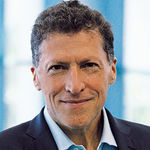
Arnie Weissmann
I am among the legion heartened by the trend toward free WiFi at hotels in all categories. The movement for systemwide free connectivity among major brands has been gaining momentum among large hotel groups: Marriott offered it last fall (outside the agency distribution system) to loyalty members who booked direct, followed by Starwood, which in December included it with electronic bookings (including those made by agents).
Hyatt one-upped everyone last month with the rollout of systemwide WiFi, no strings attached.
There seems to be a growing sense of inevitability that access to free WiFi will be added to our hotel guest Bill of Rights rather than to our bill at checkout.
This change of heart is not the result of altruism or even necessarily a reflection of a renewed focus on customer service. Competitive pressures and the desire to attract millennials as well as a recognition that many frequent travelers now use their phones as hotspots, have collectively put pressure on hoteliers.
The loss of that income to hotels will be painful. In 2014, hotels collected roughly $2.25 billion in fees and surcharges, up from $2.1 billion in 2013, according to a survey released by New York University. The study also showed that fees and surcharges produce 80% to 90% of hotel profits.
Wow! That suggests that even high-end hotels may be closer than anyone would have thought to the airline model -- perhaps even the Spirit Airlines model -- of driving profits from ancillaries. That WiFi charges are going away is a recognition that charging for it is not a sustainable revenue stream, but its loss could add pressure to increase an equally unpopular add-on: involuntary resort fees.
Hoteliers will defend the imposition of resort fees as a means of packaging value-added services. They like to differentiate it from airline ancillary fees (which amounted to more than 3% of 2013 airline revenue vs. 1.8% for hotel fees and surcharges) by highlighting the experiential differences between the warm, inviting atmosphere of a hotel vs. the cold, often irritating feel of commercial air transport. Warmth comes at a cost, they say.
The perceived value of WiFi has been the bedrock of resort fee schedules. And some properties want it both ways. When Linq opened recently in Las Vegas, it touted free Internet among its attributes -- but also included WiFi among services it bundled in its $25 fee.
The website VegasChatter.com has done a remarkable job of listing every Vegas hotel's resort fees. Reviewing and analyzing it says a lot about the correlation between price and value in resort fees.
It turns out there is none.
Even among properties with common ownership, fees might be similar (many properties are fond of the figure $32.48, tax included), but among the 18 properties charging that amount, the number of included benefits ranges from four to 11.
In all, there are 35 resort fee price points among the 75 Las Vegas hotels, from a pre-tax $5 (the Mardi Gras, which includes a shuttle, in-room coffee and Internet) to the tax-inclusive $32.48, which at the Four Seasons at Mandalay Bay will get you Internet, in-room coffee and tea, local and toll-free calls and a shoe shine.
The average of the resort fees comes to $21.61, although it should be noted that 31 of the 75 reported numbers with tax included; if all had, the actual average amount paid would be higher.
So what does one typically get for $20-plus per night? Not much. The only amenity included in all 75 hotels was WiFi, which may soon be considered as much an entitlement as an in-room safe, a television, toiletries, security guards or turndown service. (Wait! All of these were listed by one or more properties as included in their resort fee. In fact, at the Vdara, turndown service is an inclusion "upon request.")
The next most listed amenity -- mentioned by 69 properties -- was use of the fitness center. Fair enough. Next in popularity were free local calls, presumably for the benefit of guests who in 2015 do not own a cellphone. Another 14 properties included domestic long-distance calls.
Thirty-two provide newspapers (though some require you to pick it up in the lobby), 23 will print your boarding pass, 20 mention that they'll provide coffee (again, you may have to go to the lobby to get it yourself). A surprising 20 will make a limited number of copies for you and send or receive a few faxes.
Twenty more will give you discounts of some kind for their in-property restaurants, gift shops, bars or attractions; 16 will provide shuttles between their property, downtown, the Strip, a mall or to the airport; 14 give access to their pools; 13 will give you (limited) bottled water; and a dozen include parking.
Although the majority are just offering some combination of Internet, phone, fitness center, newspaper and coffee, there were some add-ons that I felt lived up to the spirit of a resort fee, including a yoga class, bowling, tennis, golf bag storage, sauna and steam rooms and a hosted wine reception.
Six properties will shine your shoes.
Ancillary fees are clearly important to hospitality, and it's in everyone's interest that hotels and resorts be financially healthy. But I think hotels are going to have to step up their game when it comes to resort fees.
Surprise us with something more inventive than coffee and newspapers. Don't just charge us for something we brought with us (a hotspot-enabled smartphone), a service any decent hotel will provide (printing a boarding pass) or services we absolutely expect to be included in the price (one property justified its resort fee, in part, by saying its reception desk was manned 24 hours. Another listed "access to concierge").
Nobody wants to pay money for nothing.